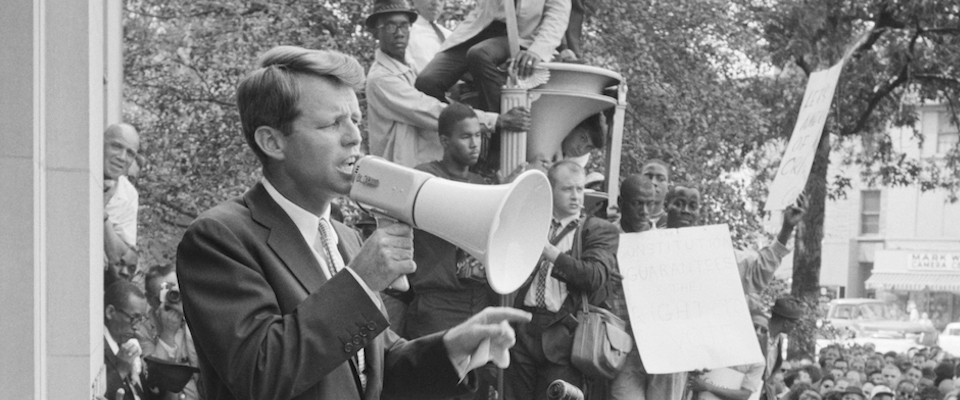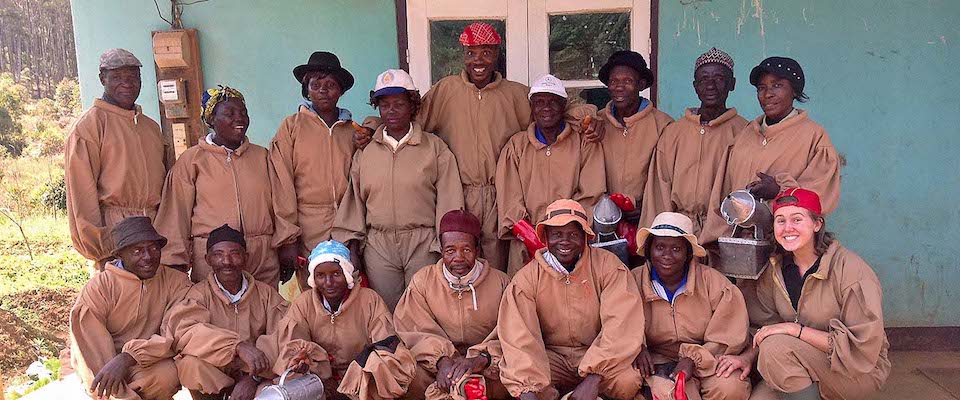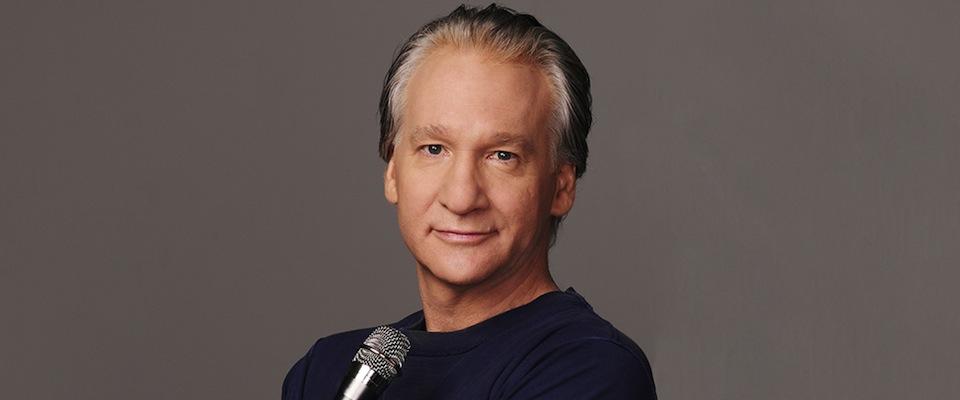On Oct. 22, 1966, the Beach Boys released “Good Vibrations,” the Soviet Union successfully launched an unmanned spacecraft toward the moon, and on the UC Berkeley campus, Robert F. Kennedy lectured liberals about the limitations of protest.
Protests stemming from the Free Speech Movement, which began two years earlier, were still persistent enough that Republican Ronald Reagan launched his political career by campaigning on a pledge to “clean up the mess at Berkeley.”
Also two years earlier, Kennedy had been elected to the U.S. Senate from New York in the wake of the assassination of his brother, President John F. Kennedy. Senator Kennedy came to Berkeley to affirm that protest was indispensable, “for there is much to dissent from,” but also to call for action beyond marching in the streets.
This, despite calls for Berkeley not to allow it by Reagan, who was running for governor. Permitting the speech, he argued, would mean the university was being used for partisan political purposes.
Kennedy began, “We dissent from the fact that millions are trapped in poverty while the nation grows rich,” sounding a complaint that that may be familiar to anyone following the 2016 elections.
“We dissent from the conditions and hatreds which deny a full life to our fellow citizens because of the color of their skin,” he said. “We dissent from the sight of most of mankind living in poverty, stricken by disease, threatened by hunger, and doomed to an early death after a life of unremitting labor. We dissent from the willful, heedless destruction of natural pleasure and beauty.”
Even Reagan, who defeated incumbent Democrat Pat Brown, might have agreed with some of the speech, particularly when Kennedy said “we must distinguish between the right of dissent and the way we choose to exercise that right.”
“It is not enough to justify or explain our actions by the fact that they are legal or constitutionally protected. The Constitution protects wisdom and ignorance, compassion and selfishness alike,” Kennedy said. “But that dissent which consists simply of sporadic and dramatic acts sustained by neither continuing labor or research—that dissent which seeks to demolish while lacking both the desire and direction for rebuilding, that dissent which contemptuously or out of laziness, casts aside the practical weapons and instruments of change and progress—that kind of dissent is merely self-indulgence. It is satisfying perhaps to those who make it. But it will not solve the problems of our society.”
By the late 1960s, the civil rights movement had achieved the Civil Rights and Voting Rights acts, “but implementation was slow and some African-Americans and some whites were becoming impatient,” said Robert Reich, the Berkeley chancellor’s professor of public policy. “Some even suggested that violence was necessary in order to achieve full equality. Kennedy wisely understood violence would set the movement back, and make progress politically more difficult to achieve.”
Indeed, at this point in his speech, Kennedy got to what was really on his mind: “The struggle of Negro Americans for full equality.”
“I know many of you understand the terrible frustration, the feeling of hopelessness, the passion for betterment which, denied to others, has turned to violence and hate,” Kennedy said. “It is difficult to live in the shadow of a multimillion-dollar freeway, to watch the white faces blur as they speed by the problems of the city, returning each evening to the pleasant green lawns of the suburbs. And it must be difficult beyond measure to share in America’s affluence enough to own a television set—and to see on that set the hate and fear and ugliness of little Negro children being beaten and clubbed by hoodlums and thugs in Mississippi.”
This sort of observation, says Larry Tye, author of Bobby Kennedy: The Making of a Liberal Icon, helped make Kennedy “the most trusted white politician in black America.” Furthermore, “corrective protests he called for at Berkeley resonated because he’d done more than anyone to bridge America’s racial gap.”
Kennedy implored Berkeley to reject violent acts: “Some have turned to violence. And the question many Negroes surely ask themselves—the question many of you surely ask yourselves—is, why not?”
“We must oppose violence not just because of what violence does to the possibilities of cooperation between whites and blacks; not just because it hampers the passage of civil rights bills, or poverty legislation, or open-occupancy laws,” Kennedy said. “Cruelty and wanton violence may temporarily relieve a feeling of frustration, a sense of impotence. But the damage of those who perpetrate it—these are the negation of reason and the antithesis of humanity, and they are the besetting sins of the 20th century.”
Robert Cohen, who got his master’s and doctoral degrees in history at Berkeley in the 1980s, is now a professor of social studies education at New York University and author of the authoritative book on the Free Speech Movement, Freedom’s Orator. He said Kennedy’s message is relevant today, given what he described as resentment among whites of the Black Lives Matter movement.
“While chanting in opposition that all lives matter or that blue lives matter may feel good to resentful whites, it offers no solution to the problem of police violence and murder of African Americans,” Cohen said. “RFK wants us to move beyond emotionalism and to work towards real solutions that put us on the road to social justice.”
Tom Kertscher is a PolitiFact Wisconsin reporter for the Milwaukee Journal Sentinel and the author of books on two Wisconsin sports figures: Al McGuire and Brett Favre. Follow him on Twitter: @KertscherNews and @KertscherSports.





















